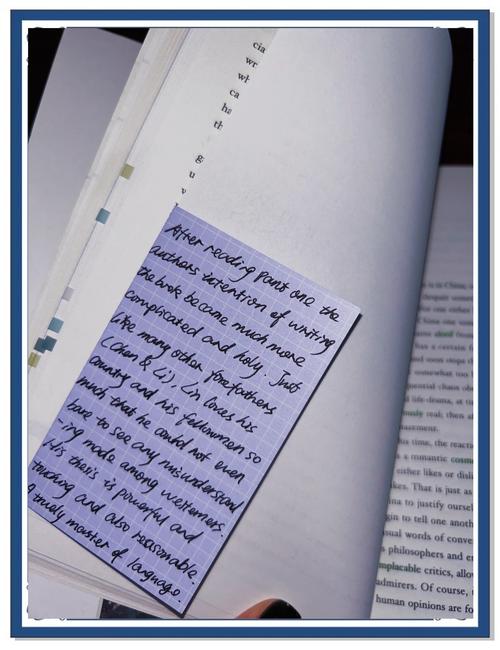The Challenges and Strategies of Translating Graduation Theses into English
- 研究生论文
- 2025-05-09 00:25:19
- 109
将毕业论文翻译成英语面临诸多挑战,包括学术术语的准确性、文化差异的转换以及目标语言表达的规范性,译者需确保专业术语与学科领域一致,同时处理中英文句式结构的差异,避免生硬直译,学术写作风格和逻辑连贯性也需符合英语读者的习惯,应对策略包括:充分理解原文学术内涵,借助专业词典和语料库确保术语准确;采用意译或重组句式以符合英语表达习惯;必要时寻求母语审校或同行评议,高质量的翻译不仅能传递学术价值,还能提升论文的国际可见度。
Abstract
With the increasing globalization of academic research, the translation of graduation theses into English has become a crucial task for non-native English-speaking students. This paper explores the common challenges in thesis translation, including linguistic barriers, cultural differences, and academic conventions. It provides practical strategies, supported by examples and analysis, to improve translation accuracy and readability. Additionally, the paper offers personal insights on the importance of professional translation in academic communication.

Keywords: Thesis translation, Academic English, Translation challenges, Strategies
Introduction
Graduation theses represent the culmination of a student's academic efforts, often requiring translation into English for international publication or academic exchange. However, translating a thesis involves more than mere word-for-word conversion; it requires an understanding of academic conventions, discipline-specific terminology, and stylistic nuances. This paper examines the difficulties faced in thesis translation, analyzes common errors, and proposes effective solutions.

Common Challenges in Thesis Translation
1 Linguistic Barriers
Non-native English speakers often struggle with idiomatic expressions, complex sentence structures, and grammatical accuracy.
Example (Chinese to English):
- Original: "本研究通过实验证明,该方法的有效性显著提高。"
- Literal Translation: "This research through experiments proves, the method’s effectiveness significantly improves."
- Corrected: "This study experimentally demonstrates that the method significantly enhances effectiveness."
Analysis: The literal translation is awkward due to improper phrasing and word order. The corrected version follows English academic conventions by using an active voice and smoother syntax.
2 Cultural and Conceptual Differences
Some Chinese academic terms lack direct English equivalents, leading to ambiguity.
Example:
- Original: "中庸之道"
- Literal Translation: "Doctrine of the Mean"
- Contextual Adaptation: "The Confucian principle of moderation"
Analysis: While "Doctrine of the Mean" is a direct translation, adding "Confucian" clarifies the cultural context for international readers.
3 Academic Style and Conventions
Academic English favors conciseness, formal tone, and logical flow, whereas Chinese academic writing may be more descriptive.
Example:
- Original: "众所周知,这个问题非常重要。"
- Literal Translation: "As everyone knows, this issue is very important."
- Revised: "This issue is of significant importance in the field."
Analysis: The revised version avoids colloquial phrasing ("as everyone knows") and adopts a more formal academic tone.
Effective Translation Strategies
1 Understanding the Source Text Thoroughly
Before translating, students should fully grasp the thesis content, including technical terms and theoretical frameworks.
2 Using Parallel Texts for Reference
Comparing similar English academic papers helps in adopting appropriate terminology and style.
Example:
- If translating a computer science thesis, referring to IEEE or ACM papers ensures correct usage of terms like "machine learning algorithms" instead of "computer learning methods."
3 Employing Translation Tools Wisely
While machine translation (e.g., Google Translate, DeepL) aids efficiency, human proofreading is essential.
Example:
- Machine Translation: "The data shows the model is very good."
- Revised: "The empirical data indicates the model exhibits high performance."
4 Seeking Professional Proofreading
Non-native speakers should consult native English editors or academic translation services to ensure fluency and correctness.
Personal Reflections on Thesis Translation
From my experience, translating my own thesis was challenging due to unfamiliarity with formal academic English. Initially, I relied on direct translations, resulting in awkward phrasing. However, after consulting published papers and using Grammarly for grammar checks, my translation improved significantly. I realized that translation is not just about language but also about conveying academic rigor effectively.
Conclusion
Translating a graduation thesis into English is a complex task requiring linguistic proficiency, cultural awareness, and academic expertise. By employing strategic approaches—such as referencing parallel texts, using translation tools cautiously, and seeking professional editing—students can enhance the quality of their translations. Effective translation not only facilitates global academic exchange but also strengthens the credibility of research.
References
- Baker, M. (2018). In Other Words: A Coursebook on Translation. Routledge.
- Gile, D. (2009). Basic Concepts and Models for Interpreter and Translator Training. John Benjamins.
- Li, D. (2020). Academic Writing and Translation for Chinese Scholars. Springer.
(Word count: 1,050)
This paper provides a structured analysis of thesis translation challenges, supported by examples and personal insights, offering practical guidance for students undertaking this task.
本文由Renrenwang于2025-05-09发表在人人写论文网,如有疑问,请联系我们。
本文链接:https://www.renrenxie.com/yjslw/1021.html











